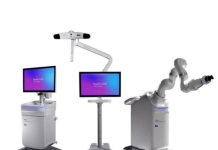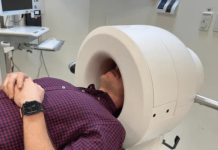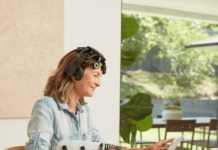NOCD recently closed a $33 million funding round, led by F-Prime Capital. The startup plans to reach more people with OCD to offer exposure and response prevention therapy, a type of therapy that is considered an effective treatment for OCD, but can be difficult to find.

Before the pandemic, more people turned to telehealth to access mental healthcare when it was hard to find. It’s only accelerated since then, and that’s no exception for NOCD, a startup offering virtual therapy for obsessive-compulsive disorder.
The company is now seeing 12,000 telehealth visits per month, just six years after NOCD founder Stephen Smith first released an app to help people with OCD. The startup recently raised $33 million in funding, led by F-Prime Capital, which it plans to use to expand its global footprint and treatment services.
“We’re just stepping on the gas and scaling, that’s why this round is so important, it’s helping us fuel our growth to the next level, where we can say the OCD crisis has ended,” he said.
OCD is characterized by intrusive thoughts or worries, and the behaviors a person engages in to try to ease those worries. It’s estimated to affect about 1 in 40 people, but is often misdiagnosed.
The gold-standard treatment for OCD, exposure and response prevention (ERP) therapy, involves facing these fears directly. But therapists trained in ERP can be difficult to find and costly.
“It’s been one of the biggest challenges for people in the OCD community. It historically has been very inaccessible. It’s difficult to find a licensed therapist in-network who specializes in it,” Smith told MedCity News. “When you do find a licensed therapist, usually because there are so few of them, people would wait on a three-month or a seven-month waitlist, they’d spend over $350 per session out of pocket.”
Smith founded NOCD based on his own experience with these challenges. When he had a severe onset of OCD in college, it took five misdiagnoses, and a seven-month wait to find a therapist, who then charges $300 per session.
The startup trains therapists in ERP, and offers virtual visits. It takes insurance from UnitedHealthcare, Cigna, and many of the other major providers.
“It’s a priority for us because we really know what it’s like to not have access to effective care,” he said.
NOCD also has an app to keep track of ERP exercises and moderated community discussions.
With the new funding, it plans to add support for conditions that can sometimes accompany OCD, such as anxiety, hoarding, or body-focused repetitive behaviors, such as hair pulling or nail biting. It also plans to add community-driven therapy groups, and more intensive support, including psychiatric treatment services, virtual partial hospitalization and intensive outpatient services.
“We’ve created a model that allows people who are really severe and needing help get treatment for the root issue and get better much faster,” he said.
The good news is, when people are able to reach treatment, it’s very effective.
“When (people) get to treatment they make really major strides,” he said. “It’s incredible.”
Find executive talent!
Submit your vacancy




